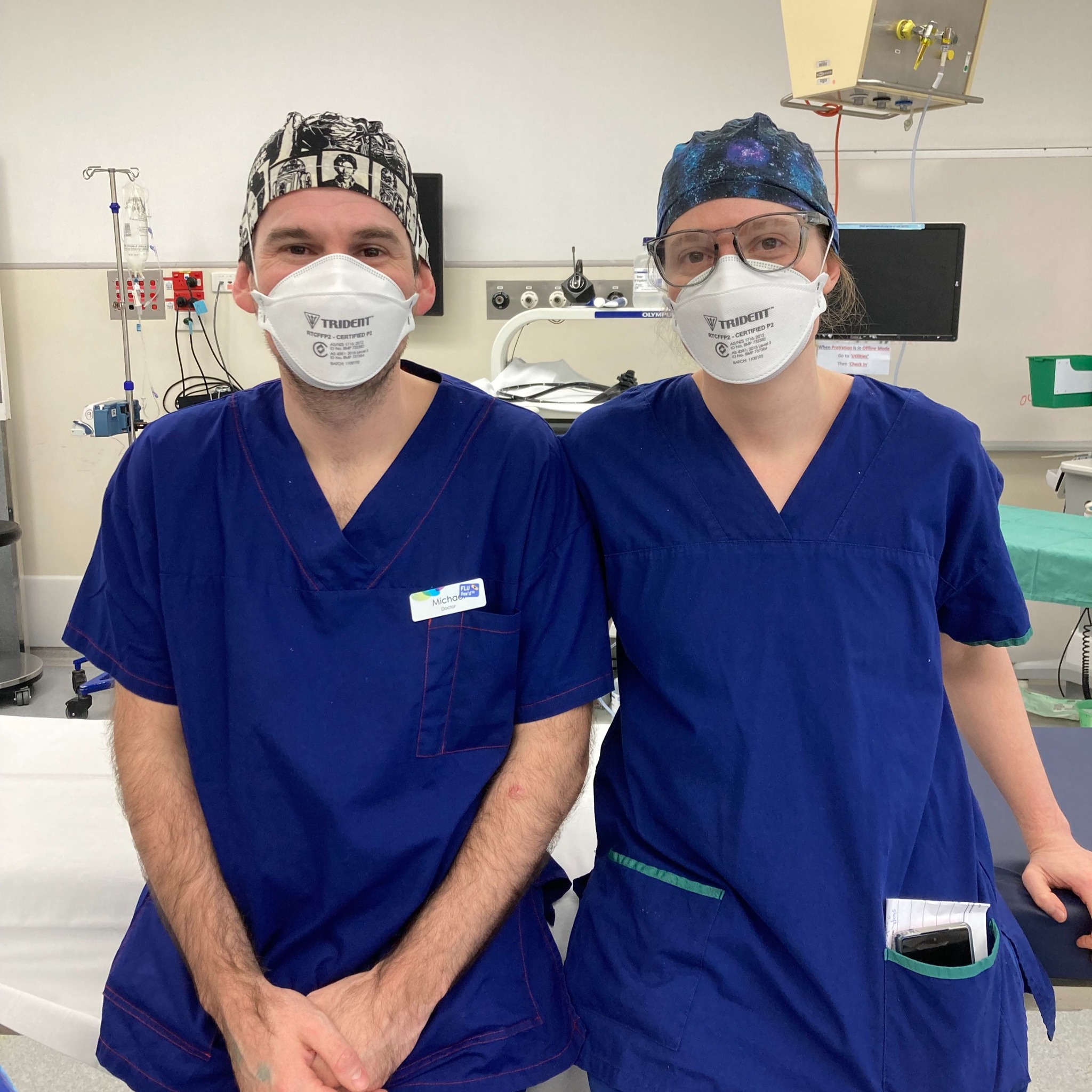A generation ago, Dr Jessica Henegan might not have dared ask about working part-time as a surgical registrar.
“Historically, it was very hard to request to work less than full-time, unless you had an ‘acceptable’ reason such as doing a PhD or Masters or growing your family, and often this meant time off rather than part time ,” she says. “It was almost seen as weak to take time off for any other reason.”
When Dr Henegan explained her reason for wanting a break – the opportunity to enjoy other aspects of her life more fully– she was pleasantly surprised by the response she got from her Western Health supervisors.
Dr Henegan and her surgical registrar colleague, Dr Michael Rouse, had proposed working week on/week off. The pair met last year, while on rotation at Ballarat Hospital, and discovered they were both looking to dial down (temporarily) the pressure in the working lives.
“I felt like I needed a break ,” said Dr Henegan, who is now in her third year of general surgical training. “Training to be a doctor and a surgeon, I felt like I’d missed out on a lot of things and I was looking for an opportunity to re-balance my life, particularly after COVID.”
Dr Rouse, now in his second year of general surgical training, also had personal reasons for wanting to move to a part-time arrangement. His daughter, 18-month-old Lillian, has a liver condition that may require prolonged time off work.
“My wife, Sarah, is also a doctor, and we felt it was important to be able to spend some more time at home,” Dr Rouse said.
After Dr Rouse and Dr Henegan discovered they were both considering to possibility of part-time training, they took their unconventional proposal to their supervisors. The part-time training and week on/week-off arrangement was also signed off by Meron Pitcher, Western Health’s Head of Surgery.
Dr Pitcher said the one-year arrangement, which began in February, had been very successful. However she said a number of factors first had to be considered.
“The concerns around part-time training include continuity of care for the patient, as well as the important learning experience of seeing a patient from presentation, taking part in their procedure or operation, and then caring for them afterwards, rather than multiple, disjointed experiences,” Dr Pitcher said.
“There are issues with attendance at different unit activities, such as clinics and meetings, which are on regular days, and potential for work to not be fairly shared.
“To work, it requires both doctors to be at a similar level of experience, and for them to be extremely diligent in communication with each other, as well as the rest of the team. Both Michael and Jess are outstanding in this regard.
“The advantage for my unit is that both Jess and Michael arrive refreshed after a week away; they are sometimes available to cover unexpected absences, and they are demonstrating that job-sharing is feasible – something that was historically doubted.”
Dr Henegan and Dr Rouse are pleased their working arrangement has been successful on both a personal and professional level.
They also hope it will help open up opportunities for more flexible arrangements for their peers in the medical profession.
“I am very positive that things are changing,” Dr Henegan says.
“It’s been a really positive experience for Michael and I, and I hope it can work for others too.”
